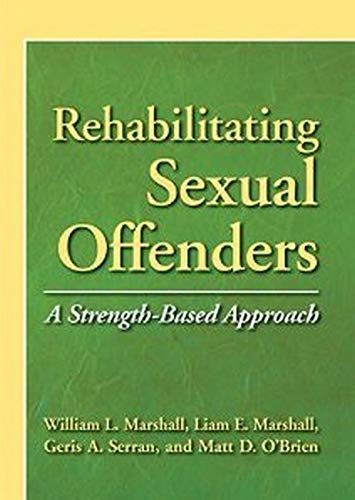
Rehabilitating Sexual Offenders A Strength-based Approach
While most sexual offender treatment programs take an aggressive, confrontational approach that targets the offenders' denial, research has indicated that this common approach does not appreciably alter actual risk factors related to reoffense rate. Furthermore, this approach can alienate and demoralize offenders. Over the past 40 years, William L. Marshall and colleagues have developed and refined a motivational, strength-based approach emphasizing warmth, empathy, and support for the offenders. Backed by research, this positive approach does not ignore risk factors but presents them to clients as targets for the development of strengths rather than as deficits to be overcome. Such programs in both prison and community settings achieve a broad range of treatment targets and appear to reduce recidivism for both sexual and nonsexual crimes. This landmark volume challenges how sexual offender treatment is typically conducted. It is thought-provoking reading for psychologists, psychiatrists, social workers, counselors, and parole and probation officers working with sexual offenders In this wonderful book, Marshall and colleagues describe the surrounding theory and treatment strategies of their positive approach to working with adult sex offenders. Exceptionally well written and clearly structured, in many respects the book represents the fruits of a lifetime of profound reflection and innovation by one of the field's outstanding talents and pioneers. It is a brilliant achievement and provides a coherent and accurate integration of the tenets of positive psychology and strength-based perspectives with contemporary assessment and treatment techniques.---Tony Ward, PhD, Head of School of Psychology, Victoria University of Wellington, New Zealand This volume is a welcome addition to the small, but growing, literature on strength-based work with offenders. It is an invaluable resource for anyone interested in the field of rehabilitation, whether they be practitioners, academics, or students.---Anthony Beech, PhD, Professor of Forensic Psychology, University of Birmingham, United Kingdom